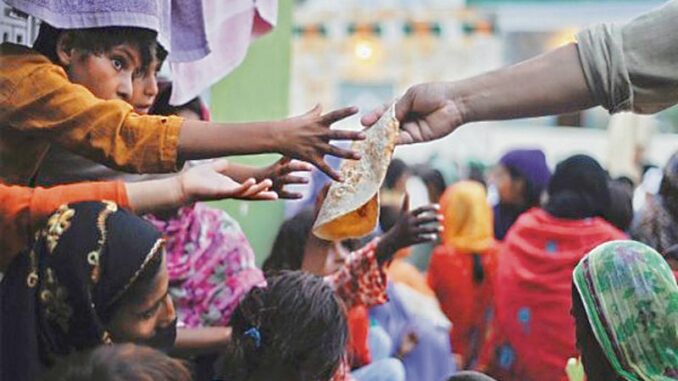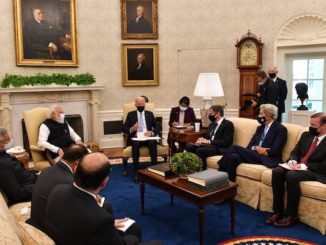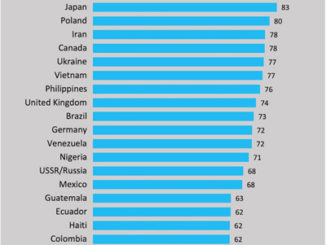
Faces political uncertainty, economic bankruptcy and Taliban violence
“Pakistan is presently fully engrossed in avoiding bankruptcy and focusing on talks with the IMF. Islamabad has been forced to accept some very tough conditions before international financial institutions like the World Bank, Asian Development Bank, and the oil-rich Arab countries step in again to bail it out. Pakistan will hopefully realize that a rapidly progressing India has the potential to further strengthen relations with both the US and Russia. It has lost the proposed Russian economic assistance on oil supplies by inexplicably supplying military hardware to Ukraine. Rawalpindi will also have to remember that terrorism and meaningful talks with India cannot go hand in hand.”

Pakistan finds itself today in an unenviable position as its economic situation worsens and its foreign exchange reserves fall below $2 billion. Desperate, it has sought assistance from the IMF, international banks and donors to escape total bankruptcy. In the meantime, verbal warfare continues between Imran Khan and the Shehbaz Sharif government. Pro-US General Bajwa has arranged for one of his proteges, Lt Gen Syed Asim Munir, to succeed him. The army will continue to court the US. Even as the country was engrossed in a bid to avoid bankruptcy, the Islamabad High Court ordered an investigation into corruption charges against the former President, Gen Pervez Musharraf, for allotting military lands arbitrarily. Musharraf, who had been ailing, died amidst the political turmoil, at a hospital in the UAE. His burial in Karachi, with full military honors, was not attended by a single prominent political leader.
In the meantime, Imran Khan, who shows little interest on addressing the country’s serious economic crisis, has asked President Alvi to order an inquiry against his bête noire, Gen Qamar Javed Bajwa. He accused Bajwa of conspiring to oust him from office. Pakistan’s politicians have, however, never showed the inclination or ability to get together in dealing with radical Islamic groups, including the Taliban. Pakistan is paying the price for the support it rendered to radical Islamic groups in Afghanistan, and even within its own borders. Moreover, even after it was known that Pakistan was working hand in glove with the Taliban, the US looked the other way, and ultimately left Afghanistan ignominiously. Imran Khan is popularly known in Pakistan as ‘Taliban Khan’.
The Afghan Taliban has for long worked in concert with its Pakistani counterpart, Tehreek-e-Taliban-e-Pakistan, which now aspires to seize control of north-western Pakistan. In keeping with its long-term policy of helping the people of Afghanistan, India has moved to provide its people with wheat and medicines. Pakistan, on the other hand, is waging a war on its territory against the Tehreek-e-Taliban, which enjoys the support of its Pashtun brethren in Pakistan’s Khyber Pakhtunkhwa province. Many in the US and Russia will be amused to observe the Pakistan army engrossed in fighting its erstwhile Taliban proteges that the ISI had used for over two decades in their battles against Russian and US forces in Afghanistan. The ISI even used Taliban assistance during the hijacking of IC 814 to Kabul.
The sustained economic and educational assistance that India provided to Afghanistan before the Taliban takeover is widely appreciated across all sections of its people. However, now India has to route essential supplies to Afghanistan by air or through the Iranian port of Chabahar. India’s Afghan friends are, however, said to be disappointed that even elderly Afghans requiring visas for life-saving medical treatment in India are denied visas. This should be addressed positively. In the meantime, differences are clearly growing between Taliban’s supreme leader Haibatullah Akhundzada and ISI’s favorite Taliban leader, Sirajuddin Haqqani. There are indications that disputes between Pakistan and the Taliban could flare up across the Durand Line.
The recent demise of Musharraf has revived interest in what transpired in his days as President. He collaborated closely with the Taliban during the hijacking of IC 814. But his attitude towards India changed with the passage of time, especially after his visit to India in 2005. What followed was serious ‘back channel’ negotiations between Special Envoys of the two countries on the issue of J&K. The Indian delegation was led by the late Satinder Lambah, who was earlier India’s High Commissioner to Pakistan. India rejected any process that did not guarantee an end to terrorism, with both sides respecting the sanctity of existing borders. The then PM, Manmohan Singh, had asserted: ‘Borders cannot be redrawn.’
While there have been statements by eminent Pakistanis like former foreign minister Khurshid Kasuri, supporting the broad agreement that the two sides reached on J&K, there have been no comments on the contents of that dialogue by India. There have, however, been reports that the understanding reached was premised on an end to support for terrorism by Pakistan. The visit of PM Modi to Lahore in December 2015 to attend a family wedding hosted by PM Nawaz Sharif raised optimism about progress on bilateral issues and an end to terrorism. These hopes were shattered by the Pathankot airbase terror attack a week later; subsequently, terrorists from the ISI-backed Jaish-e-Mohammed (JeM) attacked a convoy of CRPF personnel in 2019, killing 40 Indian security personnel. While the perpetrator of the suicide attack was also killed, India-Pakistan standoff followed. On February 26, 2020, India retaliated with an air strike on a training camp of the JeM in Balakot, across the LOC.
There is little prospect of any meaningful dialogue with Pakistan anytime soon. Whether Pakistan will abide by what was agreed to in the back-channel talks remains to be seen. Moreover, Pakistan is presently fully engrossed in avoiding bankruptcy and focusing on talks with the IMF. Islamabad has been forced to accept some very tough conditions before international financial institutions like the World Bank, Asian Development Bank, and the oil-rich Arab countries step in again to bail it out. Pakistan will hopefully realize that a rapidly progressing India has the potential to further strengthen relations with both the US and Russia. It has lost the proposed Russian economic assistance on oil supplies by inexplicably supplying military hardware to Ukraine. Rawalpindi will also have to remember that terrorism and meaningful talks with India cannot go hand in hand.
(The author is Chancellor, Jammu Central University & former High Commissioner to Pakistan)





Be the first to comment